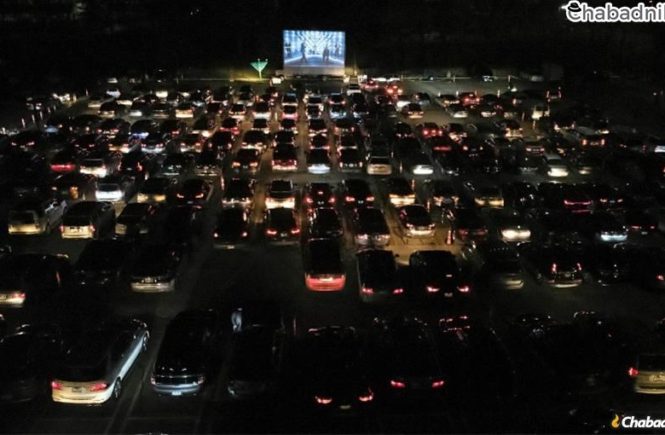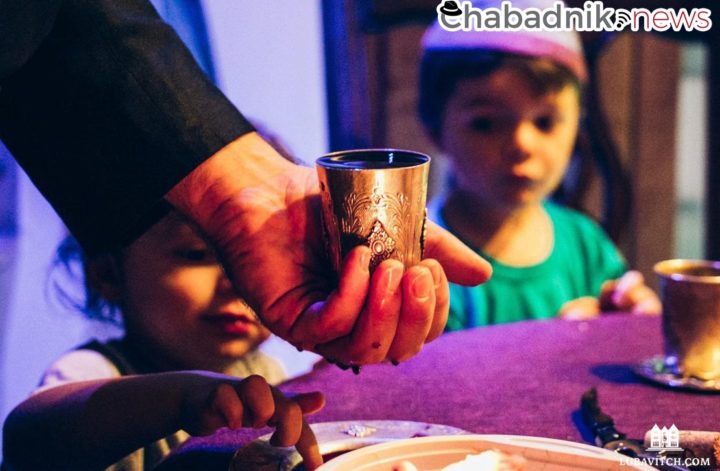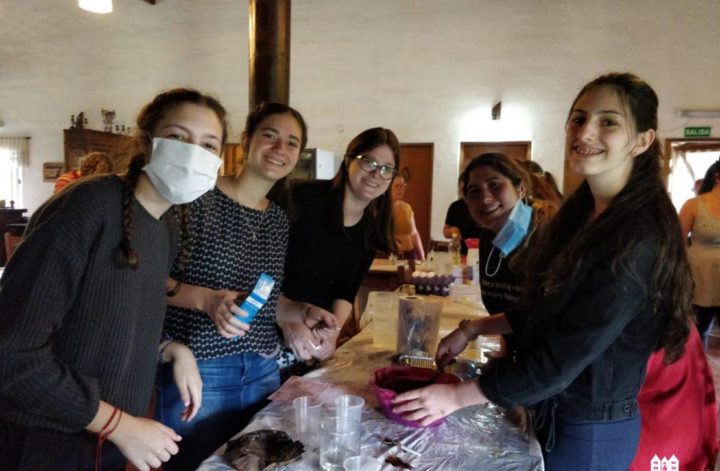‘Festival of Lights’ brings much-needed relief and connection worldwide

Every year, a small group of perhaps a dozen hardy Illinoisans brave the wind and snow outside the Grundy County Courthouse in rural Morris, Ill., for a menorah-lighting and brief celebration. This year, 27 people showed up, nearly triple the amount expected.
Masked and socially distanced, they relished the opportunity to catch up with community members they had not seen in months and meet new friends, some of whom had come from as far away as Joliet, a half-hour by car.
“I had hoped 10 people would come,” said Perry Rudman, assistant state’s attorney, and one of the organizers of the annual event. “There are maybe 20 Jews in this county, and I was a bit overwhelmed when so many people started coming.”
“I was surprised there would even be a menorah-lighting,” said Rabbi Menachem Posner, an editor and writer for Chabad.org who comes with his children from Chicago every year to lead the proceedings. “I bought a dozen doughnuts and grabbed four menorah kits, confident that we’d have enough leftover doughnuts to enjoy in the car on the way home. After all, who’s venturing out this year?”
“The crowd spread across most of the block,” noted Rudman with satisfaction. “They came to participate, be part of the celebration, and that was really striking.”
The same dynamic played out at the thousands of menorah-lightings organized by Chabad-Lubavitch emissaries all over the world. With indoor events canceled or heavily limited, outdoor lightings have become a vital way for people to celebrate Hanukkah and enjoy being among fellow Jews.
‘People Were Thirsting for This’
In St. Louis Park, Minn., more than 1,000-strong got into their cars for a drive-in menorah-lighting honoring health-care workers that also featured musical entertainment, inspirational videos and a light show. “People came out of the woodwork for this,” enthused Rabbi Mendel Feller of Chabad-Lubavitch of Minnesota, who noted that there were several such gatherings throughout the Twin Cities area. “People were thirsting for this.”

In Paris, it had been originally thought that the iconic menorah lit every year in the foreground of the Eiffel Tower would remain unused. But following the direct request of Paris Mayor Anne Hidalgo, a lighting was arranged, in addition to the hundreds of other Covid-safe holiday events being arranged throughout the City of Light.
In South Florida, Hindel Levitin, who co-directs The Chabad House Palm Beach with her husband, Rabbi Zalman Levitin, could not hold their usual giant Hanukkah gathering. Instead, they hosted nightly events (Hanukkah soirées) for a maximum of 50 attendees each evening, allowing for closer personal connections and more meaningful interaction than they would have otherwise accommodated. Levitin says she and her husband even had the opportunity to present Torah classes during the socially distanced outdoor event, something she could scarcely imagine doing during a typical Hanukkah party.

In Waterloo, Canada, the community didn’t gather for the usual lighting of the giant menorah in Uptown Waterloo. Instead, nearly 30 vehicles joined together for the city’s first-ever car-top menorah parade, in which each family celebrated in the safe (and warm) confines of their own vehicles.
Waterloo is among the dozens of cities that held parades this year for the first time, drawing thousands of families and individuals from across the spectrum of Jewish life to strap electric menorahs on top of their cars and spread the light of Hanukkah far and wide.
After driving through town, snacking on doughnuts and latkes, they gathered in a covered garage for an online Kahoot game and menorah-lighting with the mayor, all while remaining in their cars.

Driving Home the Message of Miracles and Religious Freedom
Car-top menorah parades and outdoor giant-menorah-lightings are both Chabad-Lubavitch innovations that are now decades old, sparked by the 1973 call of the Rebbe—Rabbi Menachem M. Schneerson, of righteous memory—to share the lights of Hanukkah, and their message of miracles and religious freedom to as many people as possible.
In the era of Covid, when intimate celebrations are a thing of the past for so many, they have taken a central role in creating communal celebrations that everyone can attend.
Of course, organizers are quick to point out, car parades and communal events like the 15,000 public menorah lightings hosted by Chabad-Lubavitch around the world are moving and important, but the mitzvah of Hanukkah is for every household to have a menorah of their own, with another flame each night, and for that, 10 million visitors benefited from the inspiration and guides to the holiday available on Chabad.org.
For the first eight months of the pandemic, Jewish people got used to staying put, discovering the richness and beauty of a home infused with spirituality and mitzvah observance. And now, on Hanukkah, they are learning that Judaism is equally comfortable in public spaces—provided that they are socially distanced and masked, of course.






